Differences and tensions between G20 countries cast doubt over agreement on joint declaration at India summit
United States President Joe Biden will be attending this year’s summit in the Indian capital of New Delhi, but his Chinese counterpart Xi Jinping and Russian President Vladimir Putin have both notably opted to skip it.
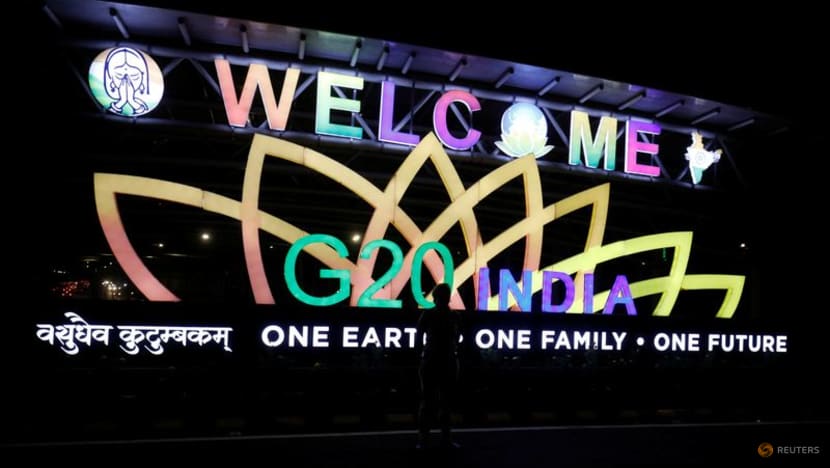
NEW DELHI: Ongoing geopolitical tensions between members of the G20 are threatening to divert attention away from crucial issues on the agenda, ahead of the bloc’s annual summit.
World leaders are gathering in the Indian capital of New Delhi for the meeting on Saturday (Sep 9) and Sunday, which is being hosted by India as part of its year-long presidency of the forum.
Some key issues on the agenda include climate finance, food security and development.
United States President Joe Biden will be attending this year’s summit, but his Chinese counterpart Xi Jinping and Russian President Vladimir Putin have both notably opted to skip it.
The G20 brings together 19 countries and the European Union (EU), with members such as the US, China, India, the United Kingdom, Germany and Australia, in a forum aimed at policy coordination and achieving economic stability.
Finishing touches are being added as the summit approaches, with security ramped up and areas in New Delhi spruced up to welcome world leaders.
Schools, colleges, offices and malls have also been closed in the national capital for three days due to the event.
GEOPOLITICAL TENSIONS
The talks come at a time of heightened geopolitical tensions, including various G20 countries having differing stances over the war in Ukraine.
Chinese President Xi will be skipping the summit, with Premier Li Qiang attending instead, as relations between China and the US remain strained.
China and host nation India also remain on frosty terms, especially after recent controversy with New Delhi complaining to Beijing over a map which it said laid claim to its territory.
Disagreements between the bloc’s members have also resurfaced over other issues such as the phasing out of fossil fuels, said analysts.
These differences and tensions between the G20 countries have prompted questions about how much will be achieved at the two-day summit and if countries will be able to agree on a joint declaration.
“There are many issues that need to be sorted out with global cooperation. Unilaterally, you can't do them, like things like climate change or decarbonisation. I think all that requires consensus building,” Crisil’s chief economist Dharmakirti Joshi told CNA.
“The success of G20 will depend on how quickly we are able to resolve our issues and come to a consensus on how to address these critical issues, which have a bearing on our future.”
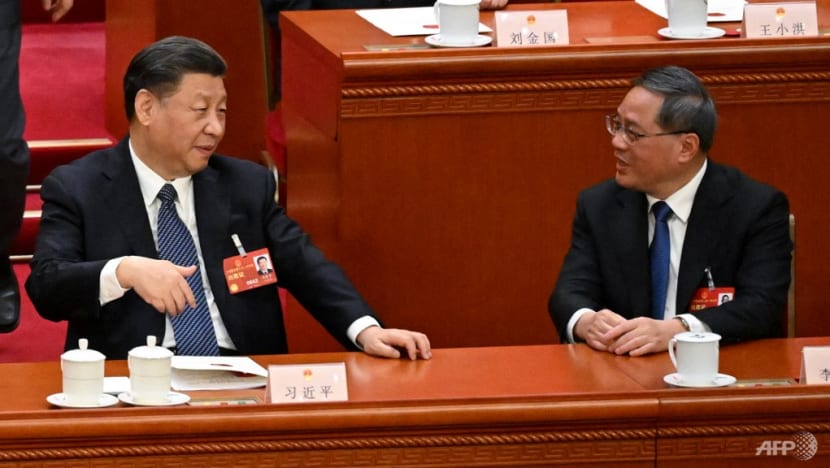
XI JINPING'S ABSENCE
This will be the first time that a Chinese president is not attending a G20 summit since the creation of the bloc, Griffith University’s international relations professor Ian Hall told CNA’s Asia First on Friday.
“The Chinese economy obviously is not firing as it has done over the last 15, 20 years or so. So there are some issues at home that need to be attended to,” he said.
“But we can't overlook the fact that China-India relations have been very tense and very difficult since 2020, when we saw a standoff on the border that led to some deaths of troops on both sides, and some allegations that China has taken some territory that India considers to be its own.”
Dr Yogesh Joshi, research fellow in the Institute of South Asian Studies at the National University of Singapore, told CNA938 on Friday that Mr Xi’s snub may be down to a matter of status and prestige.
“There's a famous Chinese saying, ‘There cannot be two tigers on the same mountain’,” he noted, adding that it describes the state of bilateral relations between the countries.
The two sides have clashed on various fronts, such as ongoing military tensions, China's influence in South Asia, and the larger geopolitics of the Indo-Pacific region.
“But I would also say somewhere down the line, it’s also a matter of status contention because they are two of Asia's most relevant rising powers,” said Prof Joshi.
“This whole year, since Indonesia handed over the presidency of the G20 to India in September, has been a year of acceptance of India's rise in the international system.”
Prof Hall added that India over the last year has not budged on a number of issues that China would like concessions on.
India has also blocked some of the global agenda that China has been looking to advance, such as at the recent BRICS summit in South Africa.
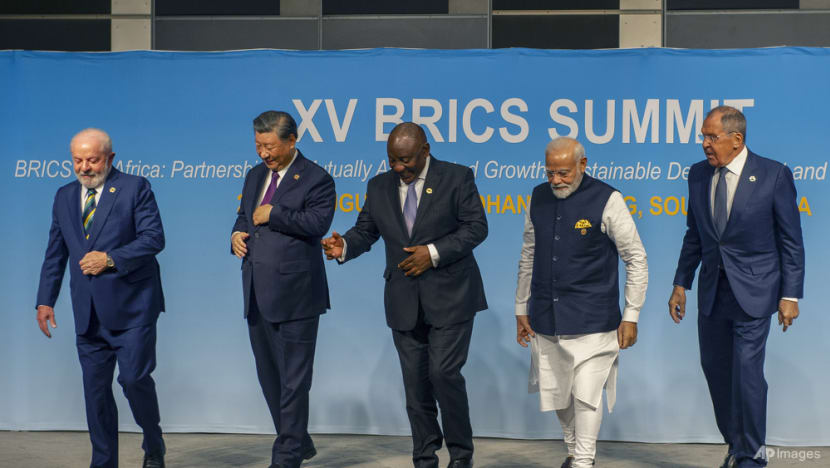
“I think that Beijing may be making a mistake here in not attending,” said Prof Hall, adding that the US will now be the “centre of attention” such as in discussions with the Global South.
REACHING THE GLOBAL SOUTH
“India has brought the Global South to the table in various different ways, for example, by encouraging the African Union to attend and trying to bring the African Union into the G20,” he said.
That formalises the Global South’s participation at the table, and provides the US the opportunity to interact “with a range of Global South leaders and a range of Global South agendas and to further some of those relationships”.
Mr Biden plans to focus on reforming the World Bank and also persuade other multilateral development banks to boost lending for climate change and infrastructure.
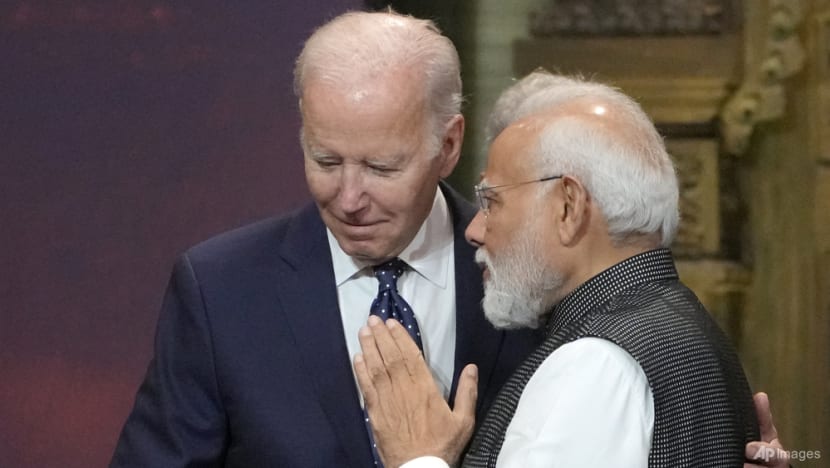
“It's likely that the G20 will not produce a joint statement at the end, and it'll be the first to fail to do that if that's the case,” said Prof Hall.
“I think the Indians will then be kind of aiming to further a number of other agendas in this particular summit … They are very keen to focus on these issues of debt relief, on the reform of some of the development banks, on issues like climate finance to allow for some green transition, particularly in the developing world.”
OVERSHADOWED BY OTHER ISSUES
The Ukraine war is also going to overshadow the summit’s agenda, said Prof Hall.
“It's overshadowed the G20 since the Bali meeting where there was some substantial disagreements at the end of last year, all the way through all of the meetings that have led up to this leader's summit,” he noted.
For the upcoming summit, there was some pressure on Indian Prime Minister Narendra Modi to invite Ukrainian leader Volodymyr Zelenskyy, but it was resisted.
“At the same time, it will be discussed, there's no question about that. The Russian foreign minister Sergey Lavrov is attending, and Lavrov has rarely missed an opportunity to raise the Ukraine issue and to point the finger at the United States for some of the problems in European security,” said Prof Hall.
India’s domestic issues also risk being a point of distraction from the summit agenda.
The Modi administration has made its G20 presidency a central part of its bid for re-election, as it seeks a third term in government in the country’s next general election next year.
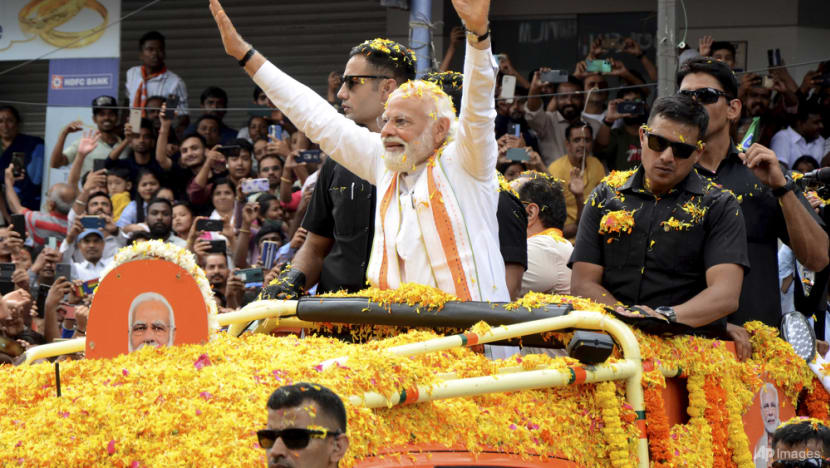
“It's likely that they will not win the kind of majority that we've seen in the past election, and that's partly because they have pursued an agenda that has opened up some divisions within India itself, between the majority Hindu community and some of the minorities, particularly the Muslim community in India,” said Prof Hall.
“It's very difficult for the Indians not to have this discussed around the G20, even though they would like to keep a kind of a firewall between India's domestic politics and India's foreign policy.”














